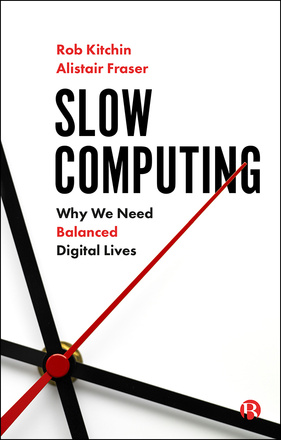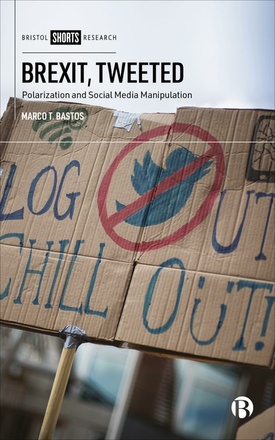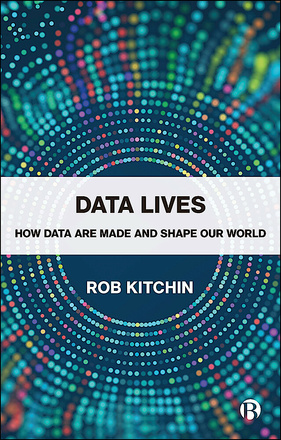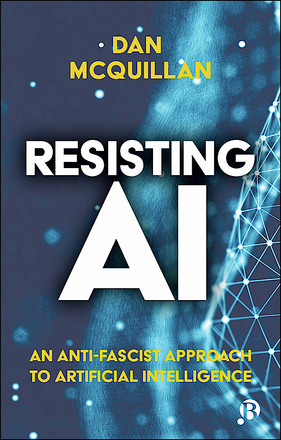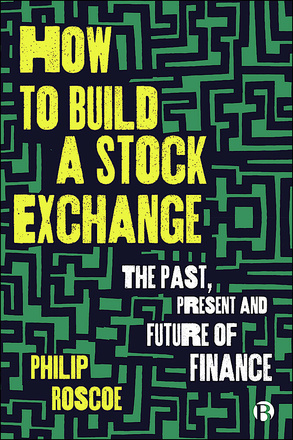Science, Technology and Society
Slow Computing
Why We Need Balanced Digital Lives
Is it possible to experience the joy and benefits of computing in a way that asserts individual and collective autonomy?
Drawing on the ideas of the ‘slow movement’, Slow Computing sets out numerous practical and political means to take back control and counter the more pernicious effects of living digital lives.
Mistrust Issues
How Technology Discourses Quantify, Extract and Legitimize Inequalities
Discussing the political understandings of trust and mistrust in the context of data, AI and technology at large, this book defines a process of trustification used by governments, corporations, researchers and the media to legitimise exploitation and the increasing of inequalities.
Experiments in Automating Immigration Systems
Identifying a pattern of risky experimentation with automated systems in the Home Office, this book outlines precautionary measures that are essential to ensure that society benefits from government automation without exposing individuals to unacceptable risks.
Living Data
Making Sense of Health Biosensing
This book critiques the popular claim that ‘more information’ equates to ‘better health’ and explores the potential challenges related to people’s changing relationships with traditional health systems as access to, and control over data shifts.
Brexit, Tweeted
Polarization and Social Media Manipulation
Dissecting 45 million tweets posted by 265.000 users in the five years that followed the Brexit referendum, this book presents an extensive and nuanced analysis of social media manipulation and Brexit.
Moral Gravity
Staying Together at the End of the World
This radical book unsettles how we think about taking responsibility for environmental catastrophe.
Going beyond both hopelessness and false hope as responses to climate change, Hill envisions a society that does not centre human beings at its core and calls for sustaining a coexistence of animals, plants and minerals bound by one planet.
Online Child Sexual Victimisation
Focusing on online facilitated online sexual abuse, this book takes a rigorous approach to existing literature to address some of the most pressing public and policy questions on this type of abuse. It examines which children are most vulnerable, how their vulnerability is made, what they are vulnerable to and how we can foster resilience.
Data Lives
How Data Are Made and Shape Our World
Rob Kitchin explores how data-driven technologies have become essential to society, government and the economy. Blending scholarly analysis, biography and fiction, he demonstrates how data influence our daily lives.
Resisting AI
An Anti-fascist Approach to Artificial Intelligence
Artificial Intelligence (AI) is everywhere, yet it causes damage to society in ways that can’t be fixed. Calling for the restructuring of AI, Dan McQuillan sets out an anti-fascist approach that replaces exclusions with caring and outlines new mechanisms that support collective freedom.
How to Build a Stock Exchange
The Past, Present and Future of Finance
Exploring the development of stock exchanges, markets and the links with states, in this book Roscoe offers a cautionary tale about the drive of financial markets towards expropriation, capture and exclusion and wonders what the future for finance might be, and how we might get there.
Platform Politics
Corporate Power, Grassroots Movements and the Sharing Economy
This book charts the rise and fall of the ‘sharing economy’, the controversial lobbying tactics used by the central companies and the backlash seen so far. It offers key policy recommendations and presents state-of-the-art knowledge around the past, present and future of the platform economy.
Responsibility Beyond Growth
A Case for Responsible Stagnation
Critically assessing growth-based models of innovation policy, this book sparks new debate on the role of responsible innovation.
Drawing on insights from economics, politics, and science and technology studies, it proposes the concept of 'responsible stagnation' as an expansion of present discussions about growth, responsibility and innovation.







